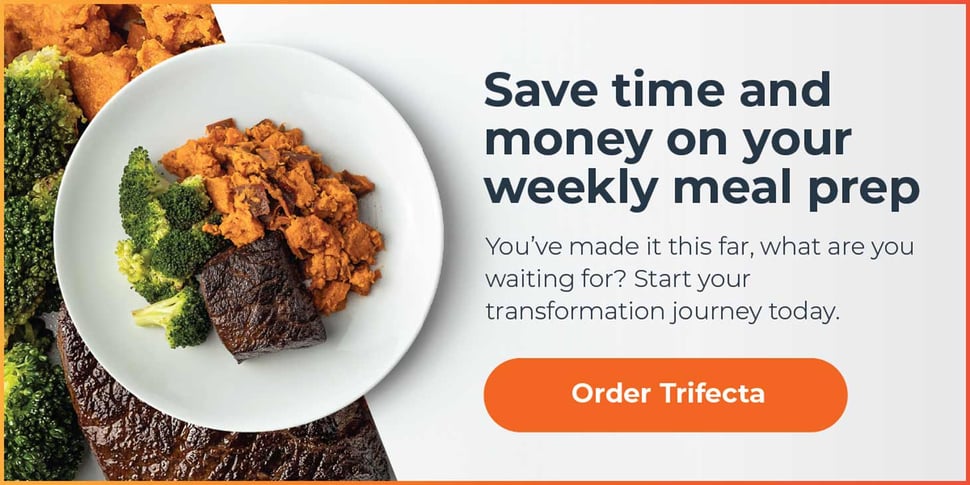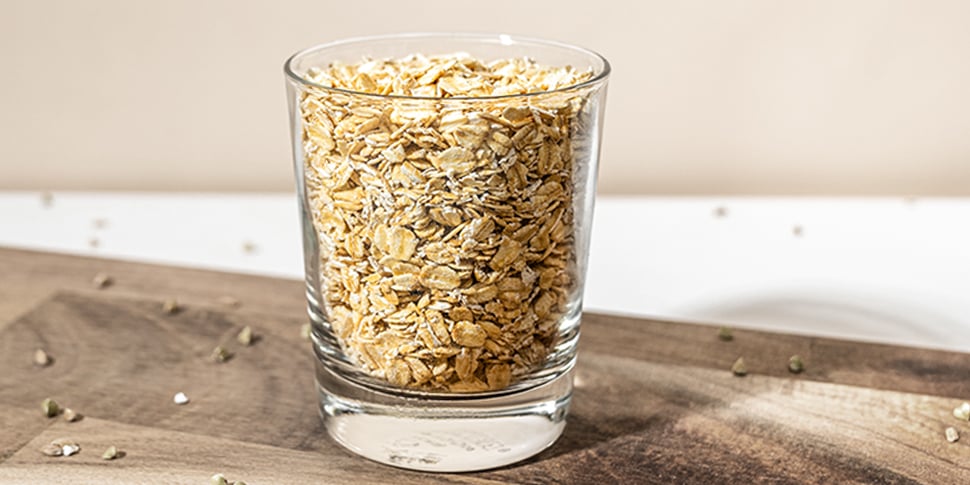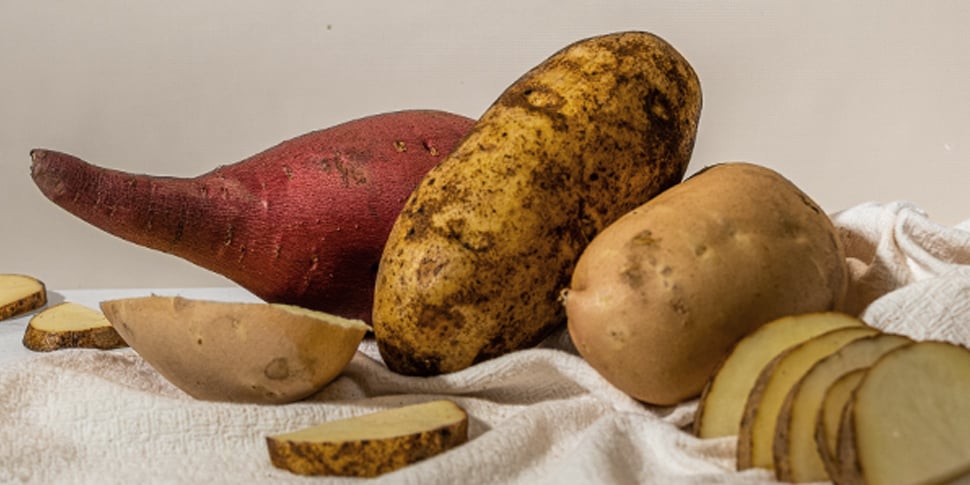Why Carbs Have Been Demonized
How many times have you heard how bad carbs are for you? Or that to lose weight you have to go on a low carb diet? Carbs have become the villain in many diet sagas and we’re here to change the tone on that a bit.
Often when you hear “carbs are bad” it’s because people are eating the wrong types or too many. This means too many processed foods, simple starches, and things that spike your blood sugar. A diet of exclusively pasta and pizza, won’t be doing much for your health, however, a diet centered around fruits, vegetables, whole grains, lean proteins, and sometimes enjoying pizza and pasta, will likely be beneficial to your health.
Another reason carbs have been glamorously restricted in the past is that they are not “essential,” however, many of the vitamins and minerals they add to your diet are essential. That being said, you don’t need the macronutrient “carbohydrate” to fuel your body, yet, these foods are abundant sources of other important nutrients our bodies need.
What About Low-Carb Diets?
Keto, South Beach, Atkins, and Zone are all examples of low-carb diets that have been popular at different times.
Low-carb diets can be effective for two primary reasons. One you lose water weight because glycogen binds to water and when your glycogen stores go down so does the water attached. During this process, our kidneys also get rid of excess sodium from the body. This is why you may lose weight more rapidly in the beginning and then see a slower decline after the first 1-2 weeks.
Another main reason that low-carb diets have been popular is that simply by eliminating common foods that you eat you will create a calorie deficit which is how any diet finds success with weight loss.
There can be risks associated with many diets but low-carb diet risks can be significant due to the amount of nutrition that many carbohydrate-rich foods provide. While it is possible to meet your energy and micronutrient needs from fat and protein sources, removing a food group makes meeting these needs more challenging (1).
If you are not planning your diet effectively or not eating a variety of foods you may develop vitamin or mineral deficiencies which can result in long-term negative health effects if they go untreated.
All diets can work for weight loss if you are consistently within your calorie goals. Ultimately, the right diet for you is the one that includes foods you enjoy and something that you can stick to long-term.
Are Carbohydrates Good for Weight Loss?
Any macronutrient in excess can affect your weight loss goals. This could be too much fat, too much protein, and yes it could also be too many carbohydrates. Many ask the question how many carbs should you eat to lose weight? The thing to remember is usually not just the macronutrient or carbohydrates that could be interfering with your goals but rather the type and quantity of those foods you are consuming.
Many low-carb diets track net-carbs vs. total-carbs. Net-carbs are used to track the number of carbohydrates that are actually being used by your body. This calculation subtracts fiber from total carbohydrates to leave you with your “net carb” value. Fiber is subtracted because your body doesn't absorb these calories.
Paying attention to net carb amounts empowers you to include high fiber and more nutritious carbs and hit your daily carb goals, whether that's on the lower side or higher side.
Weight loss occurs when you're eating fewer calories than your body is burning. The real key is figuring out how many calories your body needs to lose weight if that is your goal. If you are staying within your calories for weight loss, carbs won't stand in the way of your health goals.
To figure out just how many calories you need check out this free TDEE calculator.
Choosing The Best Healthy Carbs
Here is our list of 15 simple whole foods that contain some of the best and most nutritious carbohydrates to fuel your body and support your health.
Oats
Oats are a whole grain that is often consumed in rolled, crushed or steel-cut varieties for breakfast. Oats can also be a great snack and are often used in baking, and recently, trendy oat milk.
This contains phosphorus, potassium, magnesium, manganese, calcium, iron, and zinc. Oats also contain a generous amount of fiber, more specifically soluble fiber, which studies have shown to lower blood cholesterol levels and reduce the risk for diabetes. Oats contain insoluble fiber as well which helps with gut health by providing bulk and regularity for stool (5).
Depending on your daily energy needs it is recommended that adult women get 28 g/day and men get 36 g/day of fiber. If you start your day with a bowl of oatmeal you’ll be well on your way to this goal with 4 g of fiber, add a ½ cup of berries and you’ll be closer to 8 g.
A ½ cup serving of oats provides 150 calories, 27 g carbs, 5 g protein, 4 g fiber (6).
Potatoes
Potatoes are at that top of the list when people think of carbs they need to avoid, but somehow sweet potatoes usually escape that stigma.
All potato varieties can play a role in a healthy and well-balanced diet. Potato varieties contain different amounts of potassium, fiber, vitamin b6, vitamin c and iron. White potatoes contain slightly more protein, potassium, and vitamin c while sweet potatoes contain slightly more sugar, vitamin a, and fiber.
Potassium has been proven to help reduce the risk of cardiac events such as heart attack and stroke(7). See this article for more *foods that lower blood pressure* (link)
*Nutritive value will vary depending on the variety and size of the potato.One medium potato contains about 164 calories, 5 g protein, 37 g carbohydrate, and 5 g fiber (8).
Quinoa
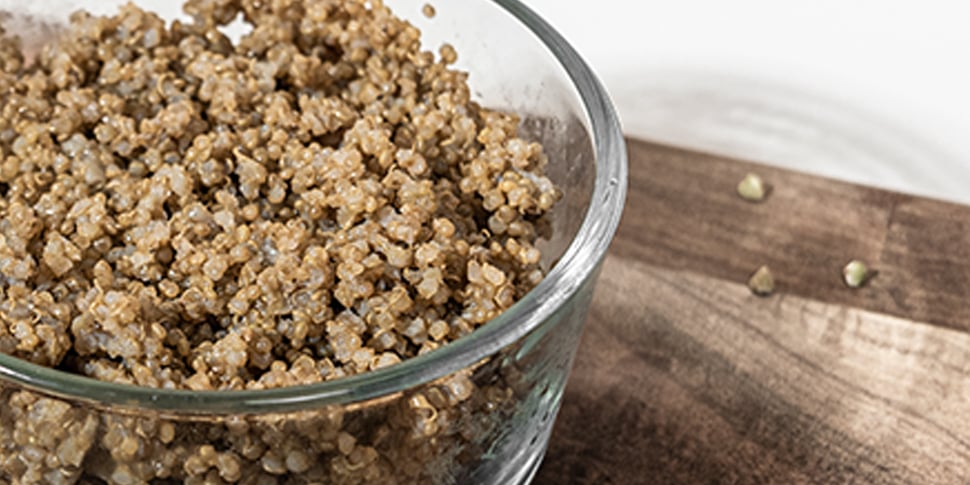
Quinoa is considered a whole grain, though it is technically a seed that comes in multiple varieties. Many regions in South American have been eating this seed for thousands of years and the food has been gaining popularity in the US.
Quinoa is often used to add substance and protein to soups and salad. Quinoa can also serve as a replacement for pasta in a pasta salad or seasoned and eaten by itself as a side dish. Less common but also delicious is using quinoa as a breakfast cereal just as you would oats.
Quinoa provides many nutrients including protein, phosphorus, magnesium, manganese, folate, and thiamin as well as fiber. For those with a gluten intolerance or allergy, quinoa is naturally gluten-free so a great option to replace other grains.
A ½ cup cooked quinoa provides about 313 calories, 12 g protein, 55 g carb, and 6 g fiber (9).
Beans
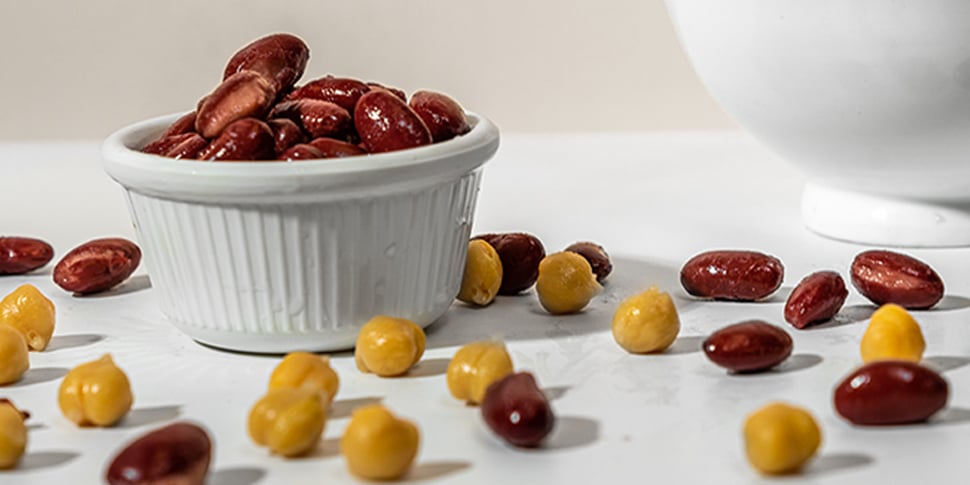
Beans are a nutrient powerhouse and versatile in how you can use them. Many different cultures use beans as a staple in their diet and with how many health benefits they offer there’s no wonder why.
Beans can be used in soups, burgers, tacos, salads, sauces, dips and the list goes on. Beans are also sometimes used in baking and made into flours like chickpea flour to boost the protein and make baked goods more healthy.
Beans are packed with good nutrients like fiber, protein, iron, folate, calcium, and zinc to name a few.
Arguably one of the best benefits of beans is how budget-friendly they are, you can buy a can of beans for less than a dollar and dry beans are even less per serving. If you’re looking at nutrition per dollar, beans will be a tough one to beat.
*Nutritive value will vary slightly depending on the variety of beanA ½ cup serving of black beans provides about 110 calories, 7 g protein, 20 g carbohydrate, and 5 g of fiber ( 10).
Bananas

Bananas are the perfect grab-and-go carb to support your health because they come with their own biodegradable wrapping. Bananas work well in breakfast cereal, baked goods, and also as an easy no-fuss snack.
In addition to carbohydrates, bananas have fiber, potassium, vitamin c, and vitamin B6. Vitamin B6 is used by your body for making red blood cells and neurotransmitters and has been linked to reduced risk for many diseases including heart disease, cancer, and Alzheimer's Disease( 11, 12, 13).
One medium-sized banana contains about 105 calories, 1 g protein, 27 g carb, and 3 g fiber (14)
Lentils
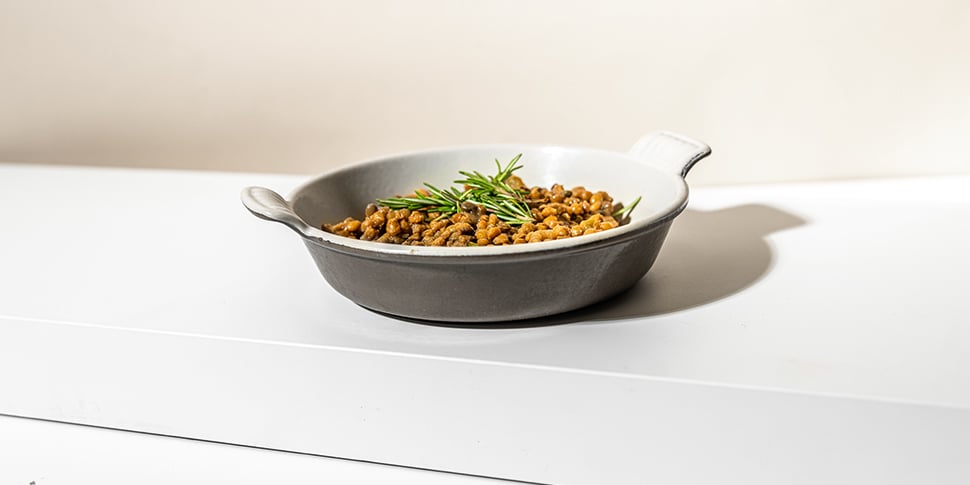
Lentils are a nutrition-packed legume that is also budget-friendly like beans. You can buy them in the dried version or ready to eat in cans or packaging. Lentils are used in soups, sides, and often as a meat replacement in vegetarian items like meatloaf or burgers.
Lentils are filled with nutrients that are good for you like folate, phosphorus, potassium, and fiber. Similar to beans, lentils are carbohydrate and protein-rich foods.
A ½ cup serving on lentils provides 115 calories, 9 g protein, 25 g carb, and 8 g fiber (15).
Berries
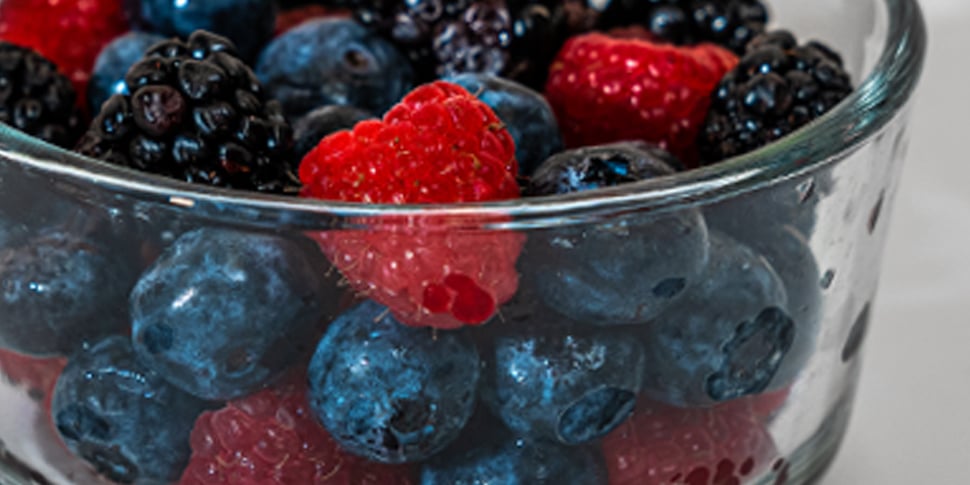
Berries are often touted as “superfoods” or foods that you should eat daily. They have many types all providing unique flavors and textures.
Berries are used in smoothies, snacks, parfaits, salads, baked goods, and desserts. Berries are arguably one of the best fruit options because you can eat larger amounts for lower calories and more fiber than many other fruits!
They have vitamin c, manganese, vitamin K, copper, and folate.
A 1 cup serving of mixed berries provides 80 calories, 1 g protein, 17 g carbohydrate, and 5 g fiber (16).
Yogurt
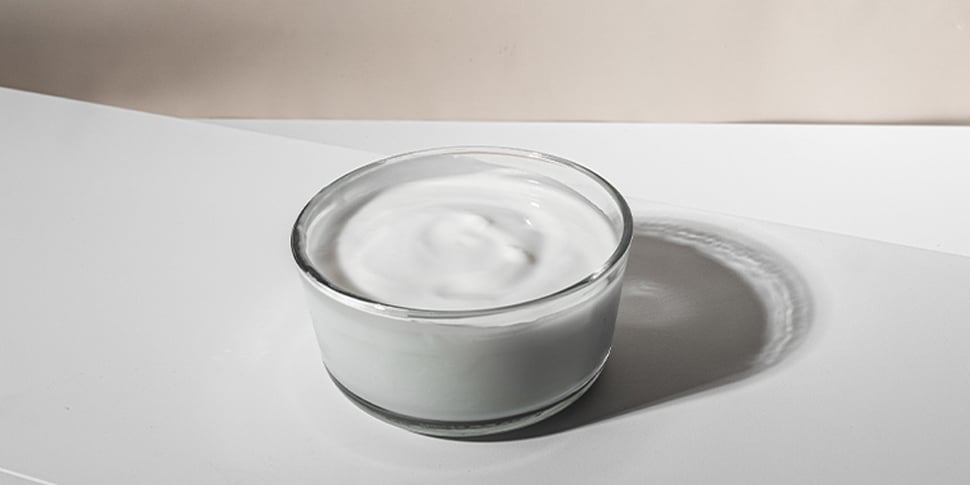
Yogurt is a breakfast and snack staple for many, and can also be used to make healthier dips, spreads, and baked goods.
There are many different types of yogurt and they all contain carbohydrates and protein but can vary drastically in amounts depending on the type of yogurt. Greek yogurt is thicker in texture, lower in lactose, and higher in protein. Traditional yogurt is slightly higher in carbohydrates and calcium.
Yogurt has carbohydrates, protein, calcium, vitamin b12, and probiotics. The carbohydrates in yogurt come from lactose, which is the natural sugar in milk. However, flavored or sweetened yogurts can be loaded with added sugars so keep an eye out for added sugar when purchasing.
A great option is to buy plain or unsweetened yogurt and then sweeten it with honey and fresh fruit to control the sugar you are adding.
A 1 cup serving of Greek yogurt provides 141 calories, 23 g protein, 9 carbs and 0 g fiber (17).
Carrots

Carrots are a crunchy root vegetable that you can enjoy raw or cooked. They are loaded with nutrients, low in calories, and offer a sweeter flavor than many vegetables.
Carrots make a great snack on their own or paired with a dip, and are used often in soups, salads, and a variety of recipes.
Carrots contain beta-carotene, a precursor for vitamin a which gives carrots their orange color. They also provide other nutrients important for your health like potassium, vitamin k, potassium, biotin, and folate. Studies have shown that carrots may benefit eye health, heart health and reduce the risk of certain cancers (18, 19, 20).
1 cup of carrots provides 45 calories, 1 g protein, 10 g carbohydrate, and 3 g fiber (21).
Winter Squash
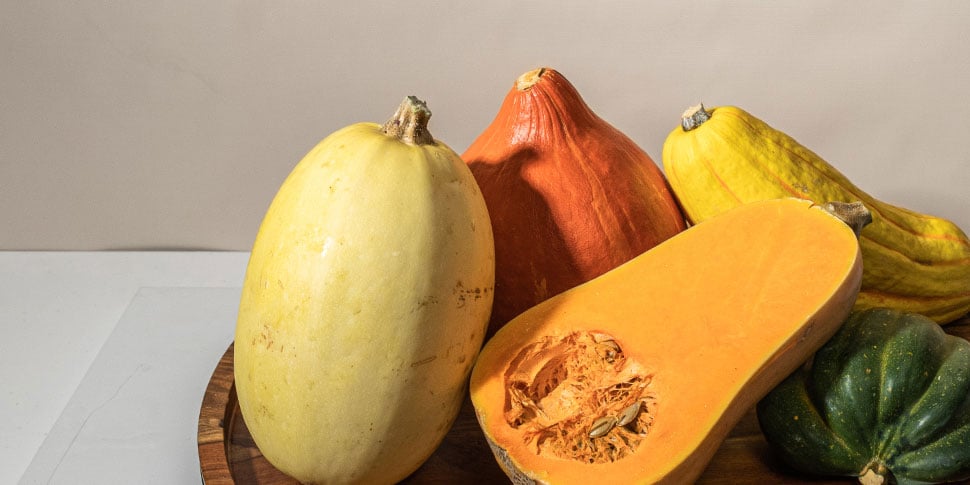
Winter squash is sometimes overshadowed by pumpkin during the holiday season which is also part of the winter squash or gourd family.
In contrast to summer squash (zucchini and yellow squash), winter squash often has a more dense exterior and texture. Common varieties include delicata, spaghetti, kabocha, acorn, and sugar pumpkin.
These hearty squash are delicious in soups, pasta, casseroles, and even desserts.
Similar to carrots, winter squash contains carotenoids and many nutrients to support your health such as vitamin C, potassium, and fiber.
1 cup of butternut squash provides 40 calories, 1 g protein, 10 g carbohydrate, 2 g fiber (22).
Barley
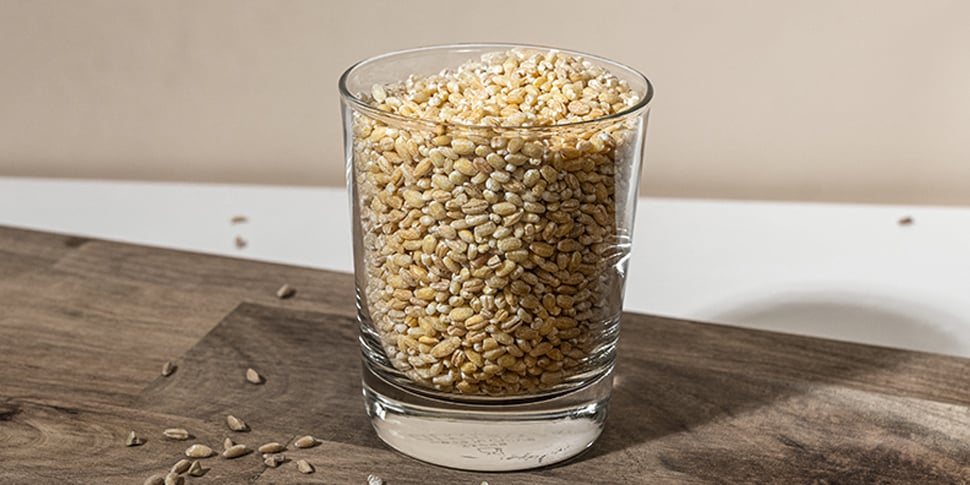
Barley is a whole grain that is used in stews, bread, beverages, and other grain dishes. Barley is usually sold either as hulled or pearl. Hulled is less processed and has most of the grain (bran and germ) intact, while pearled barley removes the hull and bran. For this reason, hulled barley offers slightly more nutrition in terms of protein, fiber, and other nutrients.
Barley provides protein, fiber, iron, magnesium, phosphorus, and potassium. Whole grains have been shown to support your health by reducing risk for chronic diseases and improve blood sugar control and barley is one of the best (22).
A ½ cup serving of hulled barley provides 325 calories, 11.5 g of protein, 67.5 g carbohydrate, 16 g fiber (23).
Buckwheat
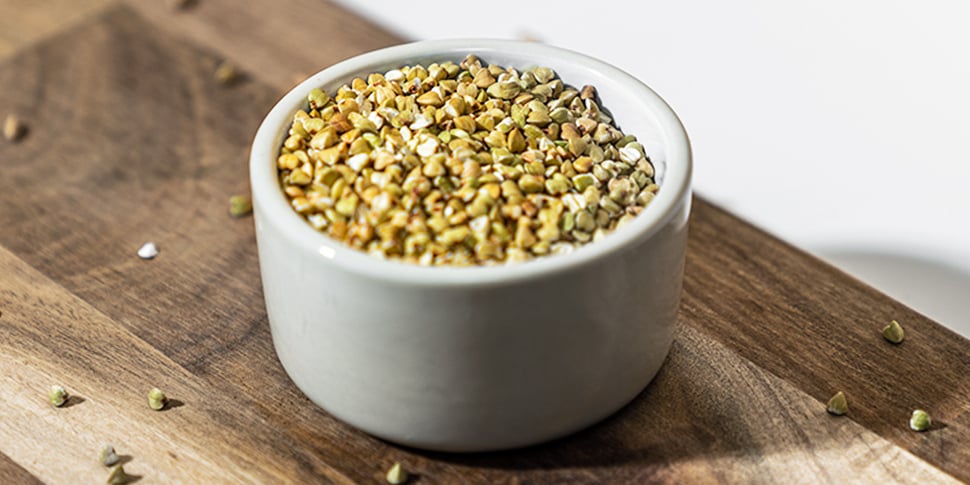
Buckwheat is a gluten-free grain in the same family as quinoa. Buckwheat is used in teas, groats (similar to oats), flours, and noodles which are referred to as soba noodles often used in Asian dishes.
Buckwheat contains iron, potassium, phosphorus, manganese, and fiber. Buckwheat has been shown to be good for your health by promoting bowel regularity and blood sugar regulation (24).
A ½ cup serving of buckwheat groats provides 300 calories, 12 g of protein, 56 g protein, and 2 g fiber (25).
Apples
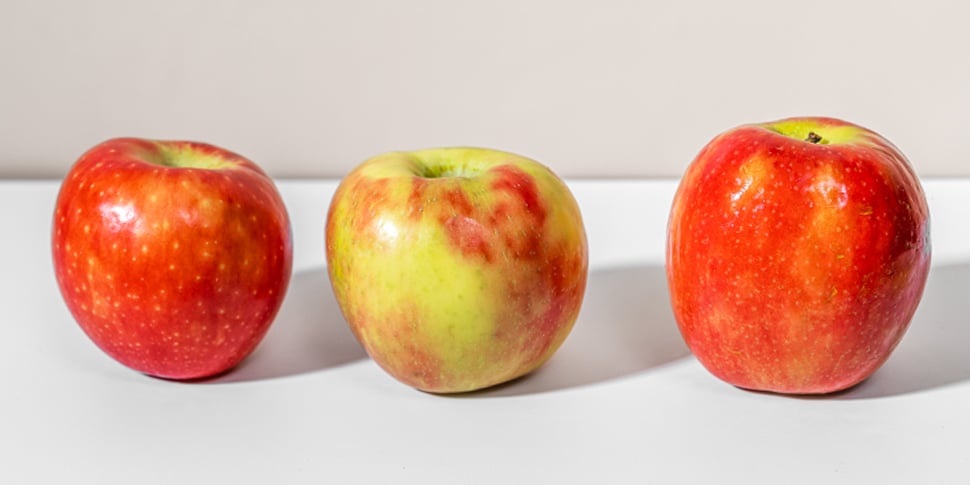
Apples are another great grab-and-go option for a quick and easy source of carbohydrates. Apples are often celebrated in the fall with apple picking, apple cider, and of course apple pie. Apples can be eaten by themselves or added to salads, breakfasts, grain dishes, and desserts.
Apples contain vitamin c, potassium, manganese, many b vitamins, and fiber. The quote “an apple a day will keep the doctor away”, doesn't go without merit. Eating apples has been linked to a lower risk of diabetes, Alzheimer's disease, cancer, bone health, and other chronic conditions (26 ).
*Nutritive value will vary slightly depending on the size and variety of the apple.1 medium apple contains about 156 calories, .5 g protein, 25 g carbohydrate, 4.4 g fiber (27).
Farro
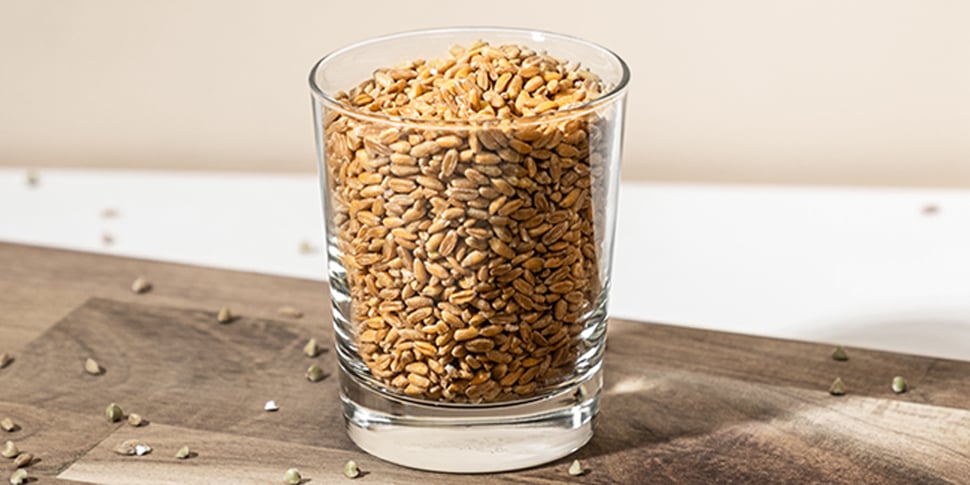
Farro is a whole grain that is filled with beneficial nutrients for your health. Farro can be used in salads, soups, wraps, and sides. Similar to quinoa, farro can be a good option used in place of oats for breakfast bowls.
Farro contains fiber, protein, zinc, iron, and magnesium. Farro is another grain that is packed with protein making it an easy option to create a balanced meal.
A 1/2 cup of farro provides 290 calories, 10 g protein, 59 g carbohydrate , and 5 g fiber (28).
Oranges
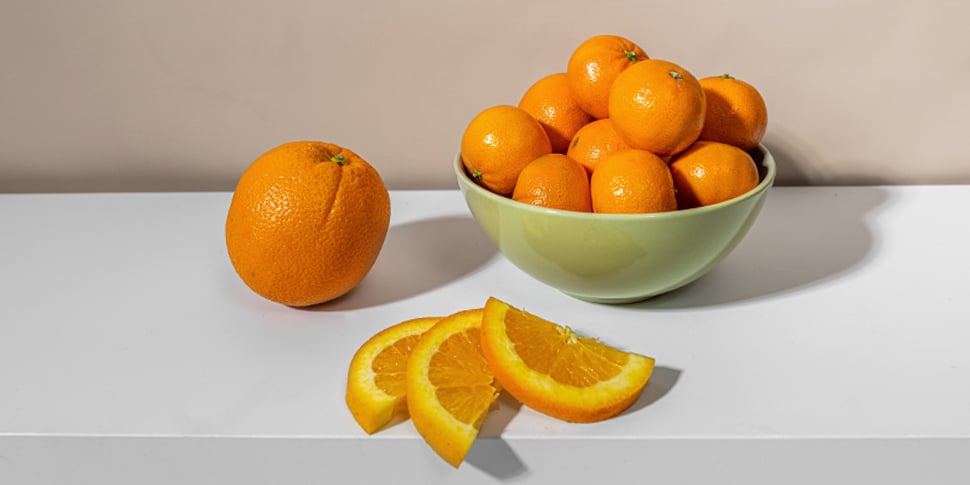
Oranges are well known as immunity boosters due to their hefty dose of vitamin C, but they offer many additional health benefits.
Oranges are great on-the-go snacks because their peel serves a protective transport, all you have to do is peel and eat. Oranges can also be enjoyed in salads, breakfast, baked goods, and more.
In addition to vitamin C, oranges fiber, calcium, folate, and potassium.
*Nutritive value will vary slightly depending on the size or the variety of the orange.A navel orange provides about 73 calories, 15 g carbohydrates, 1.3 g protein, and 3.3 g fiber (29).
How to Add Carbs To Your Diet
Maybe you've been restricting your carbs for a long time in an effort to lose or maintain your weight, or you could be including carbs in your diet but want to start making healthier choices. If you are reading this list and not sure where to start or how to incorporate these foods we have you covered.
There's a good chance that you already eat at least a few of these or other healthy carbohydrate foods. An easy way to add or increase the quality of your carb intake is to try including one new healthy carb with one meal a day, then gradually work into two, then three, then snacks, etc.
If you want to take the guesswork out of it, try a meal plan delivery service that includes healthy carbs in all meal plans except the keto (lowest carb) plan.

